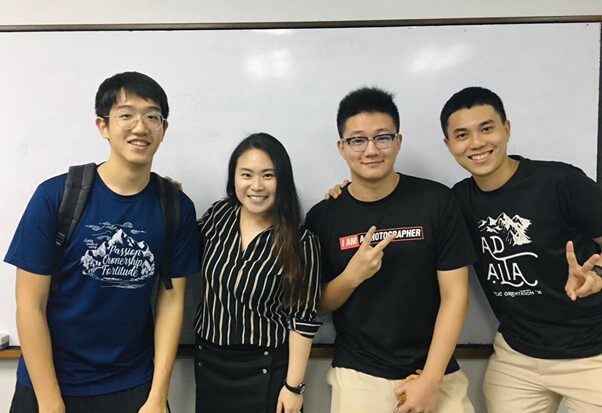
The Rise of Economics Tuition: Why Singapore's JC Students are Leaning In
In recent years, an increasing number of Junior College (JC) students in Singapore have been seeking out economics tuition. This trend might leave many wondering:
Why this sudden surge? Is economics at the JC level so challenging that it necessitates external assistance? Let’s delve into the reasons behind this growing phenomenon.
The Complexity of Economics
Economics, for many JC students, is their first foray into the world of social sciences. Unlike the straightforward nature of some sciences or the formulaic approach of mathematics, economics requires students to understand abstract concepts, analyze real-world events, and connect myriad dots.
The multifaceted nature of the subject can be overwhelming, prompting students to seek specialized guidance.
Exam Techniques and Approaches
The A-level economics examination is not just about regurgitating content; it’s about applying concepts effectively. Questions can be tricky, demanding a nuanced understanding and a specific approach.
Economics tuition can offer students targeted strategies and techniques to tackle various question types, ensuring they don’t lose valuable marks.

Real-world Application
One of the primary reasons students find economics challenging is its heavy reliance on real-world applications. Contemporary events, global economic shifts, and financial news play a pivotal role in the curriculum.
Tuition centers often provide students with updated materials and insights, ensuring they’re not just textbook-smart but also well-versed in the practical aspects of economics.
Customized Learning Pace
Every student’s grasping speed is different. While school lessons are structured to cater to the majority, some might find the pace either too slow or too rapid.
In a tuition setting, the educator can adapt to the student’s individual pace, ensuring they fully understand a concept before moving on.
Access to Comprehensive Materials
Economics tuition centers in Singapore are renowned for their exhaustive material banks. From meticulously crafted notes to a plethora of past papers, these centers offer resources that might not be readily available in schools.
This additional material can be instrumental in cementing a student’s understanding and ensuring they’re adequately prepared for their exams.
Confidence Building
Economics, with its blend of theory and application, can be daunting for many. Consistent feedback and focused attention in tuition classes can bolster a student’s confidence. Knowing they’ve mastered the subject under expert guidance can reduce exam anxiety and foster a positive attitude towards the subject.

Emphasis on Critical Thinking
More than just understanding concepts, economics demands critical thinking and the ability to analyze situations from multiple angles. Tuition often places a strong emphasis on honing these skills, ensuring students don’t just learn but think deeply.
Networking and Peer Learning
Attending tuition classes introduces students to peers from various schools, providing a platform for collaborative learning. Discussions with classmates can offer fresh perspectives, aiding in a deeper understanding of topics.
Bridging School Gaps
At times, school lessons might rush through certain topics or not delve deep enough due to time constraints. Tuition ensures that these gaps are addressed, providing a holistic understanding of the entire syllabus.
Parental Peace of Mind
Lastly, for many Singaporean parents, enrolling their children in tuition centers is as much about their peace of mind as it is about academic excellence. Knowing that their child has access to expert guidance and comprehensive resources can be immensely reassuring.

Experienced Educators
Many tuition centers boast educators with vast experience, some even with decades of teaching under their belts.
This wealth of knowledge means that they’ve witnessed the evolution of the syllabus, are familiar with common student pitfalls, and possess an arsenal of teaching techniques tailored to different learning styles.
Smaller Class Sizes
Unlike the larger class sizes in schools, tuition classes are often more intimate. This smaller student-to-teacher ratio allows for more individualized attention, ensuring that students’ queries are addressed promptly and thoroughly.
Flexible Scheduling
While schools follow a rigid timetable, many tuition centers offer a variety of class timings. This flexibility ensures that students can choose a slot that doesn’t clash with their other commitments, be it co-curricular activities or personal endeavors.

Reinforcement of Fundamentals
Sometimes, gaps in understanding arise from a shaky grasp of foundational concepts. Tuition classes often dedicate time to reinforce these basics, ensuring that students have a solid ground to build upon.
Exposure to Different Teaching Techniques
While school teachers might employ a specific teaching method, tuition centers can introduce students to varied techniques. This diversity can be especially beneficial for students who might find an alternative teaching method more effective.
Motivational Boost
The structured environment of a tuition center, combined with regular assessments, can serve as a motivational boost. Witnessing their progress firsthand and receiving commendation for their efforts can spur students to push their boundaries.

Regular Feedback Loop
Tuition centers often prioritize regular communication with parents, updating them on their child’s progress, areas of improvement, and strategies to enhance performance. This feedback loop ensures that both students and parents are aligned in their academic objectives.
Exposure to Broader Perspectives
Tutors often enrich their lessons with examples, case studies, or news from around the world, ensuring that students receive a more global perspective on economic issues.
This can be invaluable in broadening a student’s horizons and preparing them for international examinations or pursuits.
Technology Integration
Many modern tuition centers harness technology for teaching, be it through interactive apps, online quizzes, or virtual simulations. This integration ensures students remain engaged and can visualize complex economic concepts more vividly.
A Safe Environment for Queries
In larger school classes, students might hesitate to ask questions for fear of being judged. Tuition centers, with their nurturing environment, encourage students to voice their doubts, ensuring they never leave a class with lingering uncertainties.

Conclusion
The surge in JC economics tuition in Singapore is not merely a reflection of the subject’s complexity. It’s an acknowledgment of the multifaceted benefits tuition offers.
From tailored teaching methods to exhaustive resources, tuition centers equip students with the tools they need to excel.
In a competitive academic landscape, such targeted support can make a world of difference, turning apprehensive students into confident economists of the future.